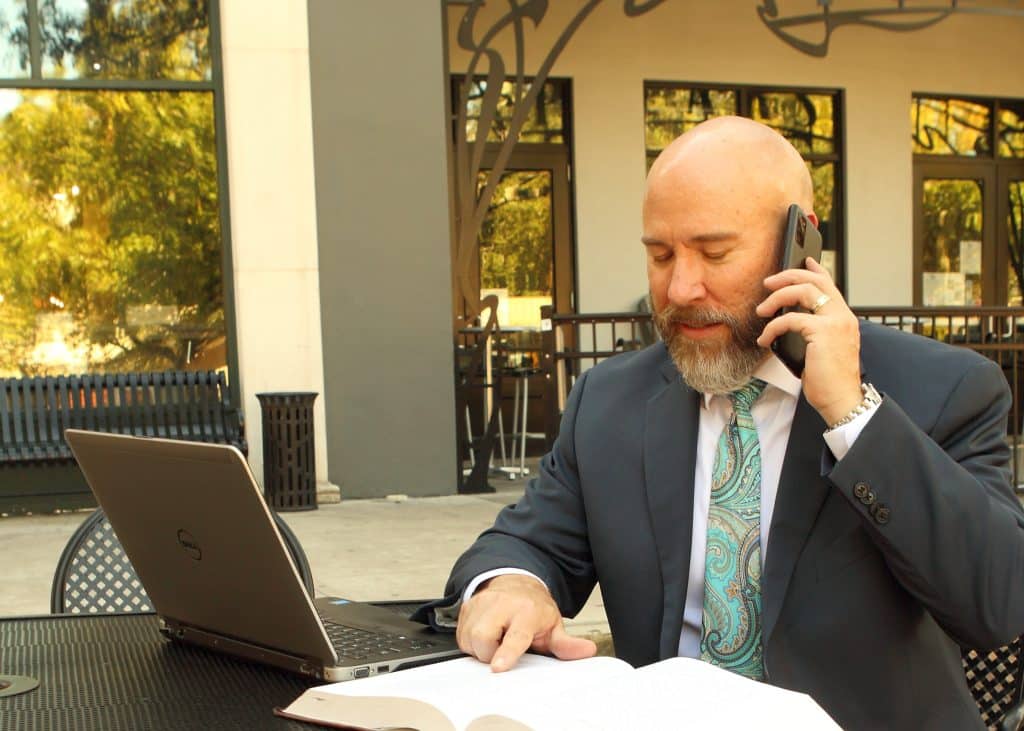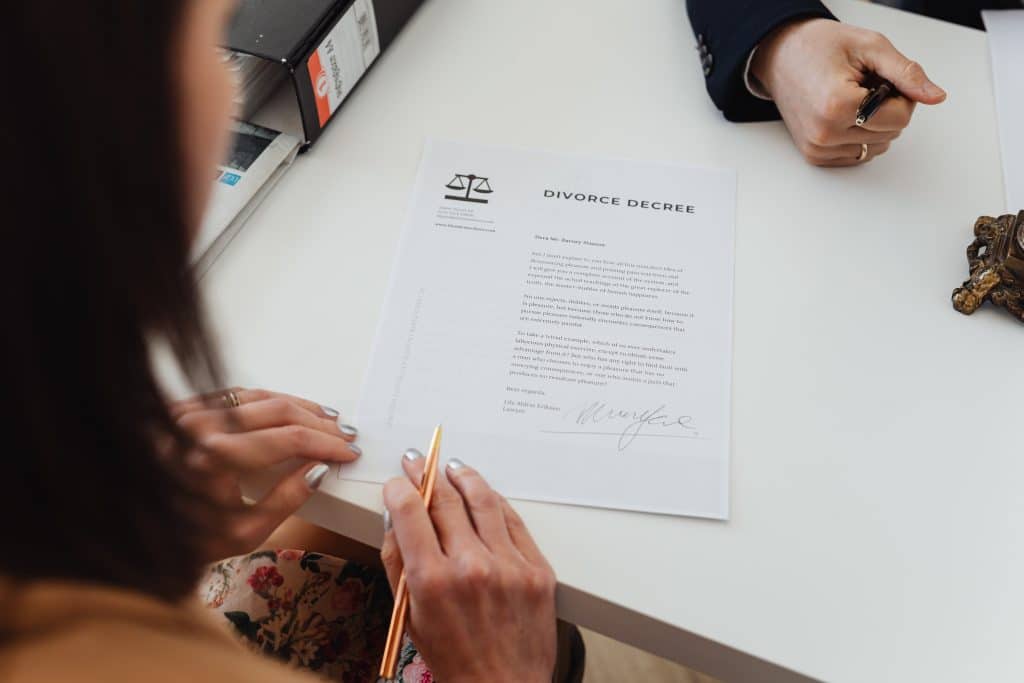What Should I Know about the Criticisms of Collaborative Divorce?
Despite the fact that collaborative divorce has been around since 1990 (more than 30 years!), there are some people who are opposed to it. What I have yet to hear from anyone who discounts the effectiveness or appropriateness of collaborative divorce is how a traditional divorce, also known as “Divorce Court” or litigated divorce, is better for families.
So, to help you understand collaborative divorce better, I thought it would be good information to share with you about some of the top criticisms of collaborative divorce.
IT COSTS TOO MUCH
Some people believe that collaborative divorce is only for the top 1% of wealthy people. Some also believe that it is not available or accessible for the middle class or people from other, more challenging socioeconomic circumstances. So, what does this argument look like? Here is an example:
“Collaborative Divorce is too expensive because a married couple has to hire two lawyers, a mental health professional, and a financial professional. So, the married couple is paying professional fees to four different professionals. When you compare that to a traditional divorce, each spouse only has to hire one lawyer.”
This seems easy for some people to say. However, when you dig a little deeper, this argument leaves out some critical information. What does the argument “It costs too much” leave out?
- TWO FINANCIAL EXPERTS vs. ONE – In a traditional divorce with financial issues, such as retirement plans, self-employment or closely held businesses, or investments, each spouse has to hire their own financial expert. The courtroom battle before the court judge becomes a battle of the financial experts. So, instead of having one financial expert paid for by both spouses in collaborative divorce, there is a need for two, separate financial experts. And, each spouse has to have the financial resources to fund his or her own expert. When you compare the total cost for financial experts between collaborative divorce and a traditional divorce, collaborative divorce will be less expensive.
- TWO PARENTING PROFESSIONALS vs. ONE – In a traditional divorce with custody and visitation issues, also known as parenting responsibility and time sharing, each spouse has to hire their own mental health expert. The courtroom battle in front of your judge becomes a battle of the parenting experts. So a traditional divorce requires money to hire two, separate parenting experts, whereas collaborative divorce only requires one. In a collaborative divorce, the fees for the single mental health professional are paid by both spouses. In a traditional divorce, each spouse has to have the financial resources to hire their own expert. This can be incredibly difficult if you are not the spouse in control of the family finances or if you have a spouse that tries to cut you off from the family money.
- INFORMATION SHARING AND GATHERING – In a traditional divorce, each spouse tries to hide information from the other. So, sometimes it is necessary to use the legal rules to get information not disclosed or shared. This could include subpoenas, depositions, formal requests for information like requests for the other spouse to produce documents or answer a long list of questions in writing and under oath. These tools to get information can be incredibly costly and can run in the thousands of dollars. In a collaborative divorce, each spouse agrees to be honest and transparent regarding the family finances and the children. So there is no need to spend time and money with formal requests to get hidden information.
- TIME TO COMPLETE – In a traditional divorce, the average time it takes from start to finish seems to be around 18 months. In a collaborative divorce, over 90% of cases completely finish in less than 12 months. The longer a divorce takes, the more money they will likely spend.
- HEARINGS vs NO HEARINGS – When you choose collaborative divorce, there will not be any hearings and there will not be any trial. In fact, you never have to see the inside of a courtroom or appear before a judge. If you choose a traditional divorce, there will probably be quite a few hearings you will have to attend. Your lawyer will charge you to schedule, prepare for, and attend each hearing. They will also charge you for any time they spend with you after the hearing. Finally, they will charge you for enforcing the court’s order after the hearing if necessary. So, a traditional divorce is probably going to cost more because of the required hearings.
THE SETTLEMENT RESULT IS NOT WHAT A JUDGE WOULD DO
Some people believe that a good divorce settlement follows the law and validates the rights and responsibilities under the law. In other words, any divorce settlement must be based upon the law and what a Judge would do. This is certainly one perspective.
Another, more realistic perspective is that a good divorce settlement is one that works for a family, is in the best interest of the children, and is something that each spouse can live with. If a settlement helps your family heal and move forward, does it really matter if it checked all the boxes for what a Judge would have done?
Here is an example…
A husband agrees to pay his wife alimony and wants to pay her 35% of his income each month. He thinks that is fair and he wants to make sure she is comfortable for the benefit of the children. His lawyer tells him that his judge never awards more than 25% of a husband’s income in alimony and that he should not offer 35%.
Would a settlement agreement between the husband and wife providing the wife with 35% of the husband’s income in monthly alimony be a bad settlement? According to whom? Is it bad because that is not what a Judge would have done?
I would argue that settlements proposed and agreed to by the spouses are better for a few reasons:
- Because the spouses came up with the settlement option, they are more likely to adhere to its terms
- The spouses know their family better than any judge would and can make better decisions about what their family needs
- It avoids the cost and time of having to go before a Judge to get a decision from someone who does not know you or your family and will make a decision based upon very limited information.
Sometimes I think that people would make better settlement agreements if the law was not the primary consideration for what is good, bad, right, or wrong. If the settlement is in the best interest of the family, then what’s the problem?
COLLABORATIVE DIVORCE IS BEING THRUST ON PEOPLE
Some say that collaborative divorce only works for people who can be open and honest with each other and have a high level of trust in one another. And—because couples who are getting divorced are unable to be open, honest, and trusting of each other—collaborative divorce is a bad choice.
They go on to argue that forcing people who don’t trust each other and cannot be honest with each other (like most divorcing couples) is unethical.
I can’t speak for my colleagues, so I will only speak for myself. I have never forced anyone into the collaborative process. My clients have the freedom to choose whatever process they think or feel would be best for their family.
Florida legislators have created a collaborative statute that requires all lawyers to advise their clients about the collaborative divorce option. So, the client has the option to choose collaborative or something else.
ATTORNEYS HAVE TO WITHDRAW IF THE PROCESS IS TERMINATED
When a collaborative divorce terminates because one or both spouses chooses to terminate the process, each spouse’s lawyer has to stop representing their client. In other words, they have to withdraw from representation.
Depending upon how you look at this unique facet of collaborative divorce, you will either see this as a positive or a negative.
The potential loss of one’s lawyer if the process fails does help keep people in the process, working hard and overcoming challenges to reach settlement. In other words, it is a motivator to keep working in the process to complete the divorce.
Some people view this to the other extreme and argue that this disqualification requirement of collaborative divorce deprives an individual of the freedom of choice to choose the right lawyer for them.
This argument fails because a terminated collaborative divorce does not mean that each spouse no longer has a choice of who their lawyer will be. Instead, they now have to choose the right for them knowing with 100% certainty that their divorce will proceed as a traditional litigated divorce in the courtroom. Not all collaborative divorce lawyers are good with litigated cases. And, not all litigation lawyers are good with collaborative cases.
Doesn’t it just make good sense to choose a lawyer based upon the type of divorce process you want? If you needed a medical doctor because you have cancer, would you choose a dermatologist or an oncologist? It is no different with the law. Pick the right lawyer for the type of legal problem you have and the legal process you want.
REMOVING THE REQUIREMENT FOR ZEALOUS ADVOCACY IS UNETHICAL
Some people suggest that because collaborative divorce focuses on the goals and interests of both spouses that this somehow eliminates or blurs the ethical requirement that a lawyer zealously represent their client. They conclude that because each attorney has a duty to both clients, that this blurs the line between advocating for one client versus the other.
This is simply not accurate and there is no requirement in the collaborative process to remove zealous advocacy. Zealous advocacy is a lawyer’s duty and has nothing to do with what legal process is used to solve legal problems.
The requirement to zealously advocate for a client does not equate to being a pit-bull, aggressively and violently fighting for a client at all costs. It also does not mean that zealously advocacy of one spouse means the total loss and destruction for the other spouse. Zealous advocacy is not a synonymous with being ruthless or dishonest.
The terms zealous advocacy is used by some people in my profession to justify objectionable behaviors, like intentionally delaying the progress of a case or the continued and repeated harassment of a spouse, that merely serve to reinforce the social mistrust of the legal profession.
This is an easy argument for lawyers to make that serves a personal purpose. Those lawyers who rely on bullying techniques and questionable legal maneuvers and strategies are threatened by collaborative divorce. Why? Because it takes them completely out of their comfort zone.
If you are a lawyer who has built your practice and reputation on being a pit-bull type of lawyer, destroying people and families to get another “win” for yourself, then collaborative divorce is a threat. It is a threat because that pit-bull lawyer will be prohibited from practicing in a manner that he/she has become accustomed to.
NO UNIFORM TRAINING OR CONTINUING EDUCATION IS REQUIRED
Some say that because collaborative divorce training varies from state to state and has no requirement for continuing education, there is no uniformity across state lines.
This argument carries no weight.
Divorce laws are state laws. Every state is responsible for making its own laws regarding divorce, also known as dissolution of marriage. So it would seem logical that each state would be responsible for making its own laws regarding collaborative divorce. Criticizing collaborative divorce because it is not uniform across all states makes no sense.
MOST CASES NEVER GO TO TRIAL SO COLLABORATIVE DIVORCE OFFERS NOTHING NEW
There are people who maintain that litigation has been a part of the world’s legal system for hundreds of years. Moreover, negotiation and out of court settlement has been a part of litigation for centuries. Finally, they maintain that very few divorce cases ever go to trial. So, they conclude that collaborative divorce offers nothing new and does not work any better of differently than the normal negotiation that happens during any divorce.
Again, this argument falls flat and has little merit.
There is no other divorce process that offers what collaborative divorce offers.
First, the negotiation that happens during a traditional litigated divorce is typically based upon legal rights and not based upon goals or interests. Second, in traditional litigation, the spouses do not have the benefit of other neutral professionals to help both of them maximize their goals and interests. Third, there is no commitment, no promise to be civil and to avoid the court system. In traditional litigation, divorce lawyers often use motions and hearings to manipulate the negotiations. For example, since each spouse has to come up with the money for their own lawyer, one lawyer’s strategy may be to file and serve so many discovery requests and motions that the other spouse runs out of money and has to give up.
There are quite a few other difference I will summarize as follows:
- Collaborative divorce is private and confidential; litigated divorce is public
- Transparency and honesty is required in collaborative divorce; neither is required in litigation
- Each spouse retains the power to make decisions in collaborative divorce while in a traditional litigated divorce, the spouses give up that power to a judge
Collaborative divorce is not for everyone, and any trained, skilled collaborative divorce professional will be the first to admit this. Just like traditional litigation is not for everyone. No single divorce process is right for every family, and it is up to the spouses to understand the available options and to decide which process would be the best option.
It is unfortunate, that the vast majority of criticisms of collaborative divorce come from people who are either not collaboratively trained or who have no collaborative divorce experience.
Get the information you need to make your own decisions. Many divorce decisions, including which process you use, will have a life-long impact on you and your family. Those of us who practice collaborative divorce and believe in its power will happily provide you with information about the pros and cons. As a matter of fact, our Florida laws require it!

CONTACT A SKILLED, COMPASSIONATE AND EXPERIENCED ORLANDO COLLABORATIVE DIVORCE LAWYER TODAY
Starting a divorce can be difficult. Divorce is the second, most stressful event someone will ever experience. It is important to have a guide who can help you identify your rights and responsibilities that you might overlook trying to do it yourself. Having an attorney who focuses their practice 100% on family law and divorce is essential because you need a professional who understands everything about divorce. The anger, the fear, the betrayal, and the anxiety about your financial future.
Divorce and divorce-related situations is all we do here at Leap Frog Divorce. We’re ready to help you today, and we have affordable options.
Call us today at 407-377-7108 or send us a message. Just let us know what you need help with, and we will contact you quickly!





